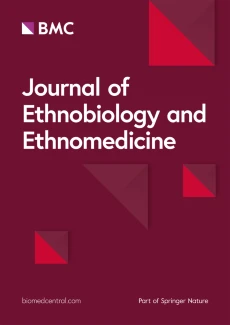In the current global situation, characterized by a turbulent post-pandemic environment, ongoing conflicts, unprecedented economic and energy crises, and daily climate-change-driven natural disasters, local knowledge systems (LKS), which over millennia have been a pillar of people’s livelihoods in many peripheral communities throughout the world, are asked to contribute and help to cope with these uncertainties.
Despite numerous studies focusing on the documentation and assessment of temporal and spatial variabilities of LKS during the past decade, "applied" ethnobiology and ethnomedicine are still largely empty boxes.
However, since LKS and their practices already have "in their DNA" the capability to adapt to stressful situations and circumstances, fostered over centuries, as well as to dynamically evolve, they need to be actively valorized and/or revitalized.
This thematic series published in Journal of Ethnobiology and Ethnomedicine, aims to explore case studies and comprehensive reviews on how these LKS conglomerates can concretely contribute to the so-called "ecological transition", i.e., to implement new environmental, social, and economic models in order to respond to the current extraordinary challenges.
Papers specifically fostering the link between local practices and innovative products, processes, methods, and ways of thinking arising from them are particularly welcome, i.e., in the fields of agroecology, environmental education, CAMs, smart cities, etc.
Ideally, contributions should try to assess, discuss, or reflect upon how directly these practices can be aimed at rethinking how communities live together within given socio-ecological spaces, work, produce, and enjoy, and in which ways they could reduce their overall environmental impact and generate social cohesion.
Furthermore, if we want LKS to become one of the privileged instruments aimed at fostering the sustainable and durable use of natural resources, the "One Health" approach, and social well-being, governments and their policies should co-create inclusive societal platforms to put this wealth of diverse heritage "to work".
This thematic series will therefore also particularly welcome original contributions and reviews on how LKS may be operationalized for generating cohesive communities and also responsible citizens, both of which are urgently needed for maintaining and expanding freedom and human rights throughout the world, where dictatorships and blind nationalism seem to be repeating the tragic history of the past.
Additionally, these processes could help to better focalize what the elaborate term "citizens' science" should resemble in the real world during the next few decades.
Therefore, possible main topics of interest for this thematic series include LKS-centred studies and their links to innovation studies and policies applied to climate change, ecological transition, and circular economy; ethnoecology, ethnobiology, and related environmental, medical and nutritional anthropological fields.





















